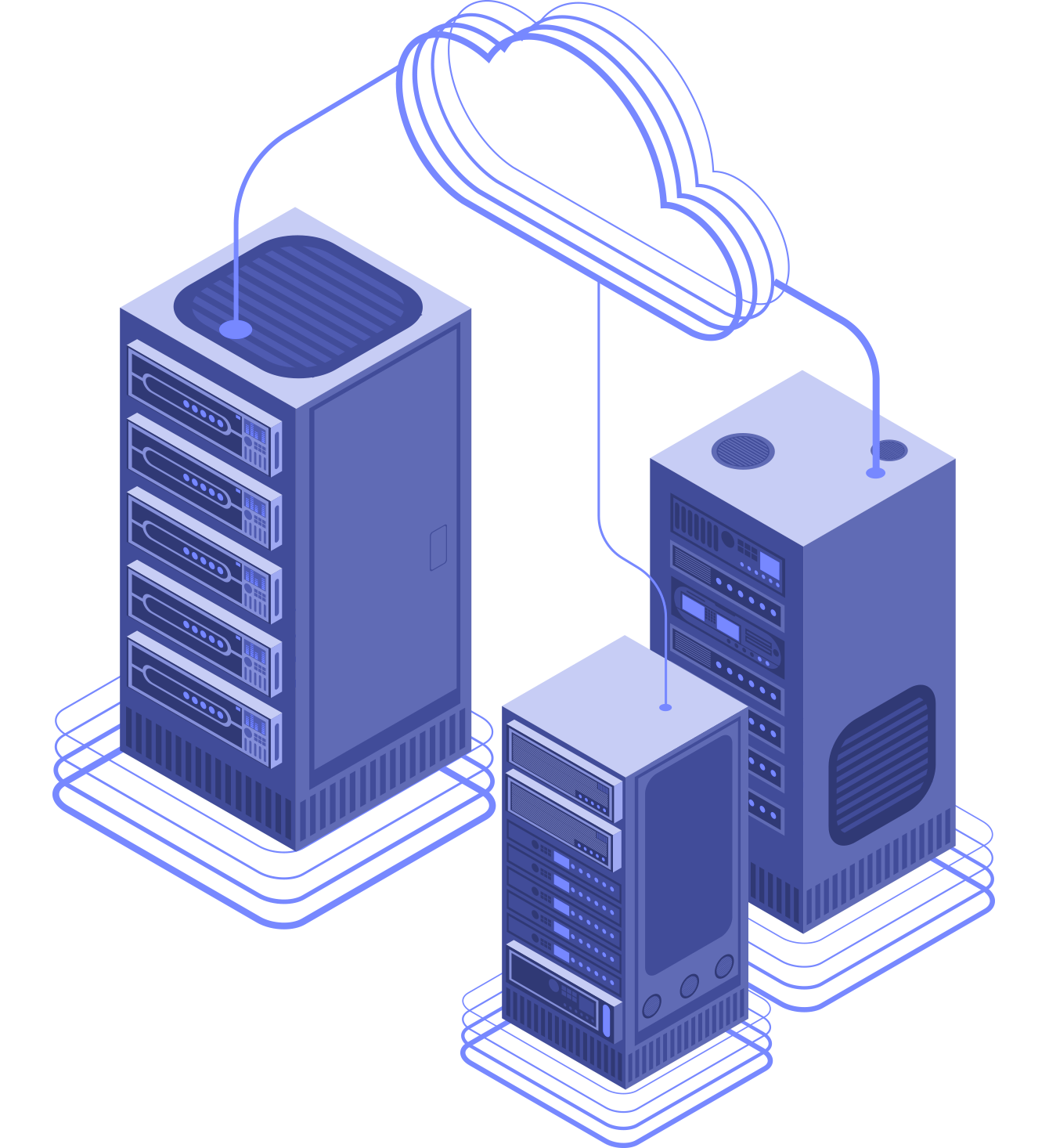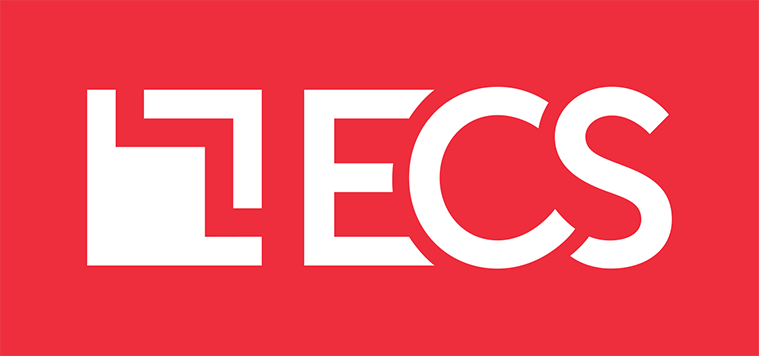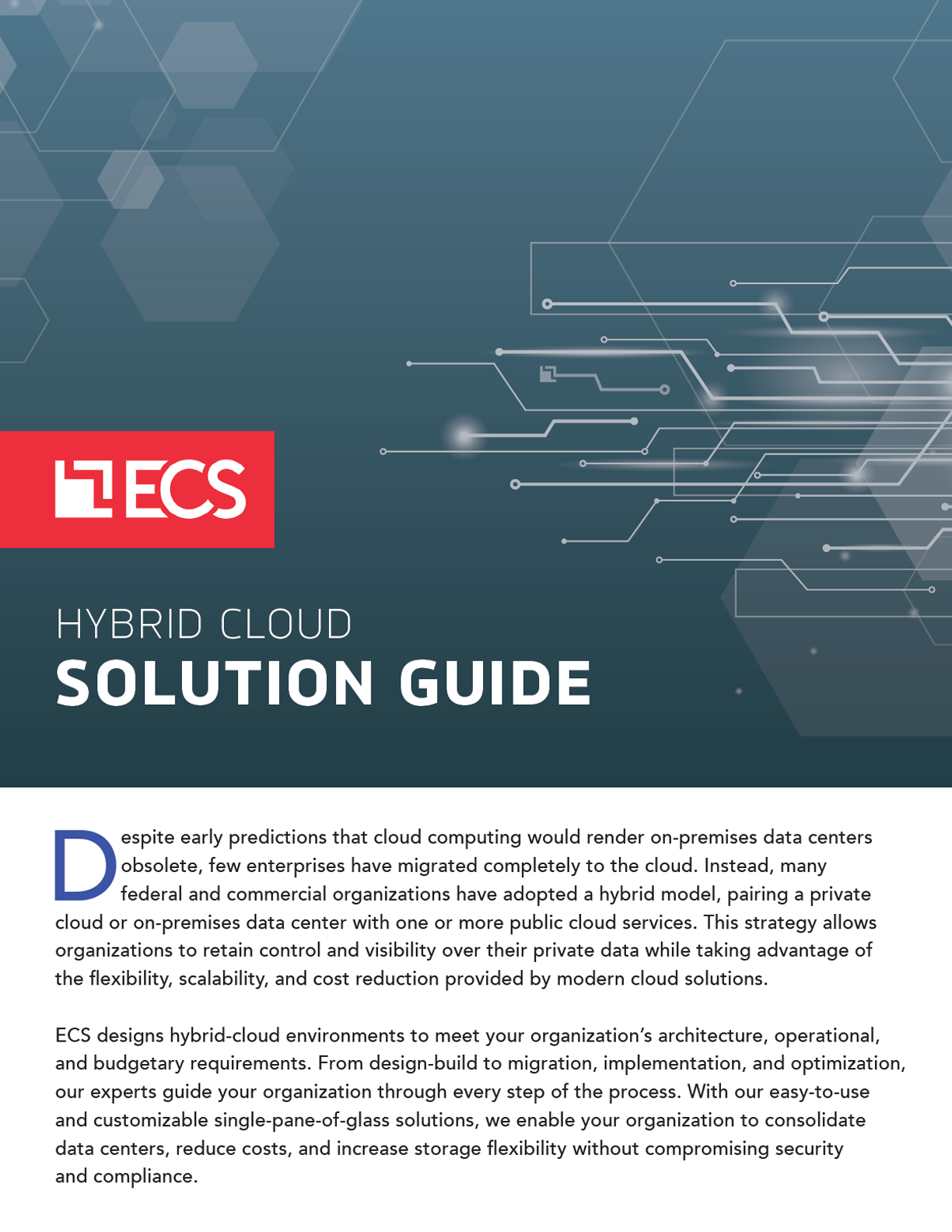With our hybrid-cloud solutions, ECS pairs the visibility and control of on-prem data centers with the flexibility and scalability of the cloud.
HYBRID CLOUD
Despite early predictions that cloud computing would render on-premises data centers obsolete, few enterprises have migrated completely to the cloud. Instead, many federal and commercial organizations have adopted a hybrid model, pairing a private cloud or on-premises data center with one or more public cloud services. This strategy allows organizations to retain control and visibility over their private data while taking advantage of the flexibility, scalability, and cost reduction provided by modern cloud solutions.
ECS designs hybrid-cloud environments to meet your organization’s architecture, operational, and budgetary requirements. From design-build to migration, implementation, and optimization, our experts guide your organization through every step of the process. With our easy-to-use and customizable single-pane-of-glass solutions, we enable your organization to consolidate data centers, reduce costs, and increase storage flexibility without compromising security and compliance.

COST
CHALLENGE: You need to expand your storage and processing power, but building a new data center is too costly.
SOLUTION: By dividing workloads between public and private environments, ECS lowers the network demand placed on your organization’s on-premises data centers. This decreased need for on-premises data centers lowers the costs associated with upkeep and maintenance and enables organizations to consolidate physical infrastructure.
When seasonal or unexpected spikes in demand occur, ECS meets the temporary increase in load by cloud bursting, which moves workloads between public and private clouds. When the demand decreases, ECS scales back your cloud usage, transforming operational costs into consumption-based pricing. You pay for space only when you need it.

DATA
RECOVERY
CHALLENGE: You worry about your organization’s ability to perform core business functions following a disaster.
SOLUTION: Many organizations turn to hybrid cloud as a cost-effective way to back up data in case of disaster. In conjunction with our disaster recovery (DR) solutions, ECS designs hybrid-cloud solutions that store and quickly deploy data when disaster strikes. Organizations receive full DR coverage without the need to invest in new data centers. With our managed DR solution, ECS ensures the continuity of mission-critical functions when cyberattacks, system failures, and other disasters threaten operations.
COMPLEXITY
CHALLENGE: With a fragmented cloud environment, your developers are forced to juggle multiple management portals, one for each cloud environment they operate.
SOLUTION: ECS’ hybrid cloud solutions use a single-pane-of-glass solution to manage applications across all cloud environments. We design these portals to be more than just centralized control panels, custom-tailoring the configuration for specific teams and business functions. Whether in use by a Security Operations Center (SOC), program management office (PMO), or site reliability officer, these portals reduce complexity for developers, saving money and time.
COMPLIANCE
CHALLENGE: Despite the flexibility offered by cloud services, growing regulation has restricted the data you can store in a publicly managed cloud.
SOLUTION: With ECS’s hybrid cloud solutions, compliance is easy. ECS maps and classifies your data before moving it to the network environment best suited for its security and compliance requirements. By running critical workloads in private environments and less sensitive workloads in the public cloud, ECS ensures third-party providers never access, view, or store your sensitive data. Regulated information, such as personally identifiable information (PII) and protected health information (PHI), is safely stored in private clouds or on-premises data centers. Less sensitive data is migrated to a public cloud environment, where it can take advantage of the flexibility and scalability the environment offers.


